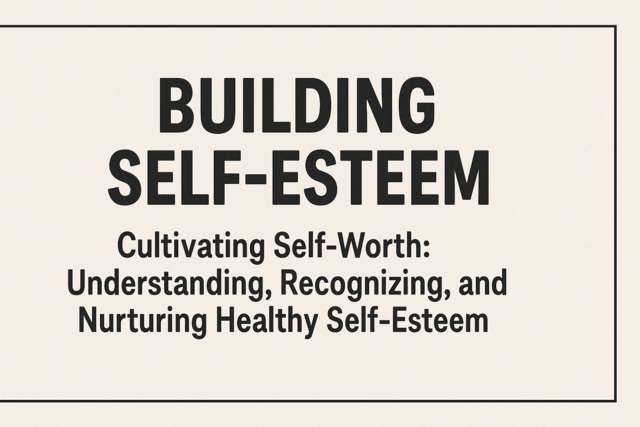CULTURE
A. Culture: Definition
The term "culture" can be used as part of a descriptive statement, as in discussing the culture of our modern society or the culture of the Hispanic population. In this case, it refers, in the collective sense, to the norms, values, beliefs, and expressive symbols held and used in a particular subset of the population.
Yet, when viewed on a larger, grander scale, culture is a complex amalgamation that is both separate from and connected to society. Further complicating the ability to explain the concept in basic, laymen's terms is that varied definitions reflect different theories and understandings, based on the specific reference point being used.
For example, "high culture" in 18th and 19th century Europe projected the notion of sophisticated tastes and educated ideals. This concept then elucidated the inequalities between classes in Europe during this period.
B. Cultural Discussions
Still to this day, attempts to define culture or explain controversies existing within our culture or the framework of society result in no clear-cut answer. For this reason, cultural discussions often tend to evolve into debates when sensitive subjects are brought out into the open.
Take, for example, discussions centered upon poverty. Ultimately, the course of the discussion can go in a myriad different directions dependent upon the backgrounds and philosophical or political ideologies of those persons involved in the conversation.
The discussion of poverty can be boiled down to focus on such basics as an individual or family's lack of basic resources like food, water, and shelter. Income and financial statistics can be used to show the current poverty line; for example, a family of four earning $19,000. Beyond the carved-in-stone data, there is a great deal of room where ideological and philosophical debates may enter into the fray.
In terms of sociological cultural debates concerning the idea of poverty, some commonly questioned themes include:
- While a family of four surviving on $19,000 per year in the United States may signify poverty, does the same figure represent poverty in foreign countries such as Belize and Iraq?
- Is poverty caused by economic, political, or social distortions, or discrimination? What types of inbred cultural belief systems serve to perpetuate the existence of poverty in certain demographics?
- Is poverty a product of environment (geographical disparities) or heredity (family upbringing)?
- While antipoverty reforms are often brought to the forefront of public debates, why is it that they do not command greater support and, even when approved and implemented, do not make greater headway in the fight to eradicate poverty?
- Should the effort to move beyond poverty be an individual effort or a responsibility of the government?
- Are handouts and public aid (welfare) the best methods for improving the poverty situation in urban areas?
- Should medical care be made available to those unable to afford it?
The commonality of all of the aforementioned debate topics is that there is no one right answer; rather, the themes raise a roster of feedback, usually from persons well-versed in the subject and vested in the outcome of the discussion.
However, the sheer fact that all themes focus on different components of the human sector and the essentials of having one's basic needs met qualifies all to be classified as sociologically worthy debates, regardless of whether an outcome is derived or multiple viewpoints are simply expressed.
Outside of poverty, you may be interested to learn of some of the other major ongoing sociological debates.
Globalization. This is a popular buzzword, similar to the term "global warming." At the crux of globalization is the direction in which change is occurring in the world at large. Numerous debates pertaining to this topic persist, including those evaluating whether new and continued growth is always necessary. Following are some related questions:
- Should government have the power to intervene in globalization efforts?
- Is materialism at the root of globalization, or is it the desire to unite persons from all over the world and ensure their longevity?
- A standard complaint against globalization is that it leads to homogenization. Is that true and, if so, is that automatically a bad thing?
Abortion. Pro-abortion advocates contend that it should be the woman's right as to whether she carries the baby to full term or ends the pregnancy during the first trimester. In turn, pro-life supporters believe that at conception the embryo represents a live human being and thus ending the pregnancy entails the taking of a life.
Hidden security cameras, representing the privacy versus security debate. While this is a relatively contemporary issue, variations on this theme include wiretapping and telephone tapping. This debate revolves around the question of whether the government has a right to safeguard the public by viewing individuals in nearly all situations, given they are made aware of this activity, or listen in on their conversations. This debate will continue so long as increased technological monitoring devices continue to be developed and employed.
Once again, the common thread interweaving all of these diverse topics involves the rights of individuals versus the common good of mankind.
C. Conducting Spirited but Productive Debates
Humans, as opposed to other life and animal forms, have the ability to think, reason, and rationalize. That is what makes us unique. By that very nature, humans are opinionated.
However, when people sit on opposing sides of the fence on particular issues, rather than employing decorum and logical thinking in a debate, individuals tend to use non-productive means to voice their views.
The problem with using uncivilized speech or inappropriate conduct as a means of espousing one's beliefs or sharing time-intensive research is that the core of the message tends to get lost amid the chaos. While many challenges of the credibility of studies, credence of viewpoints, timeliness of reporting, and meaningful use of findings have caused sociology to be seen as somewhat of an ambiguous science, the hope of those within the field is that the venerable social science can regain its prominence and that its studied intellectual findings can be put out into society and respected for their validity and reliability.
To further propagate the continued use and valued importance of cultural discussions, political scientist Shireen Hassim suggests that there is the need for developing mechanisms for encouraging dialogues in a refined manner. It is the contention of Hassim that decreasing amounts of institutional and public space are provided for such forums of engagement because they are negatively viewed as questioning the norms and values which underpin our democracy.
The difficulty lies in the challenge of dissenting from popular opinion, expressing criticism of public policy, or maligning others such as public officials or public citizens in one's crusade. In order to accomplish such a complicated feat, the suggestion was to capture the imagination of the intended audience by presenting a view of the present while also shedding light on goals for the future.
To effectively debate social and public issues, it is important that persons on each side of the debate present concrete, well-researched, factual data. Although, of course, a debate incorporates more than just the facts, it also integrates norms, values, and associated beliefs of the person or group.
The idea is to form a theory based upon the facts without deviating too far from the reality of the situation.
Yet, in addition, to collecting data, presenting research, and formulating policies based on such findings, the key to conducting successful and meaningful debates is to allow participation from relevant parties and to encourage robust, open, and democratic debate, so long as it remains within the context of the discussion and is shared in a civilized manner.






























